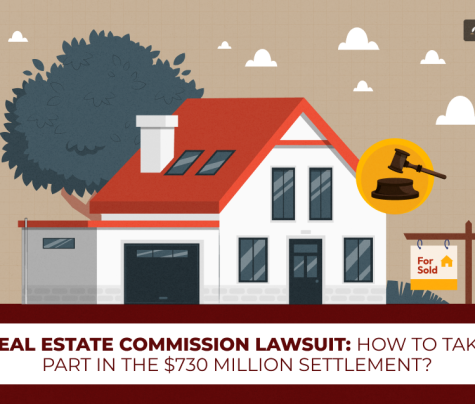
“How to negotiate rent as a first-time tenant?”
“How to negotiate rent as a landlord?”
Believe it or not, these are some of the most asked questions when people start looking for a lease!
Negotiating and reaching your desired rental price is an art. The landlords and tenants both want to finalize the price they want.
And it has rightly been said, “Unless you ask for it, you are never going to get anything.” Knowing the art of negotiation can help establish a mutually beneficial relationship between a landlord and a tenant.
In this blog, I have suggested some tips and some legal implications of negotiation. So, keep on reading this blog till the end to learn more…
How to Negotiate Rent as a Tenant?
Want to put a couple thousand dollars more in your pocket? Learn some tips for tenant negotiation here.
Keep in Mind the Exact Number You Want
If you decide to be part of the negotiation deal without preparation or keeping in mind the approximate rent amount you want, your landlord has the control of quoting the price of their wish.
So, know exactly what figures you want to get due to your deal. This number can vary from person to person and area to area.
Furthermore, negotiating rent doesn’t always have to be in terms of cash.
You can ask your landlord for other perks like free parking, allowing pets without additional fees, or free or partially paid utilities.
Even if you cannot get exactly what you want, negotiate for such features to save some money.
Understand the Nitty-gritty of the Market
Timing plays a key role when you consider negotiating the rent. Property rates aren’t always the same. They go through their feast and famine.
The landlords sometimes have plenty of empty units they want to rent. At other times, the periods arise when the list of renters is long, and they knock on every other door to get at least one home on rent.
Knowing the timings of the negotiation is thus essential to convince the landlords at a lower rate.
Besides, research the current rates in the market thoroughly. Develop a clear understanding of the amenities available near the property/home you are considering. Compare similar properties and find the things they are offering.
You can even try getting a competing rate in writing if it is less than the one offered. Take it with you during the negotiation. It works as a wonderful tool when negotiating a lower price for a similar property you are considering.
Offer Something in Return
You want a certain price for your rent, so you must do something about it. Find out what you can offer in return for the price you want to get.
For instance, you can consider prepaying your rent months in advance, signing an extended lease, offering to extend your existing termination notice (like from 30 days to 60-90 days), etc.
Knowing what you and the other party want increases your chances of getting success in the negotiation.
How to Negotiate Rent as Landlord?
We have discussed the art of negotiation for the tenants. Now let’s discuss the same for the landlord and what they need to do to get their rental price.
Preparing for Rent Negotiation
It’s time to do some math to prepare for the rent negotiation. It depends on several factors, like whether you want to rent the property to a new tenant or raise the rent amount for an existing one.
Research the listings of similar properties as yours and compare location, size, and quality. Calculate the minimum amount of rent that you can accept and then set the right rental price. Decide what terms you can agree to in a negotiation and what terms you can’t.
If you are negotiating with the existing tenants, balance the cost of the rent increase with the cost of turning over the unit.
If your tenants disagree with the valid rent increase, let the tenant go away, or you can offer some additional services that will cost you less than lowering the rent.
Take Your Time to Evaluate Offers
As a landlord, you feel a sense of joy when you secure a prospective tenant. But don’t rush into things and accept the first offer.
Evaluate and compare each offer carefully. If the first offer doesn’t meet your expectations, wait until more potential tenants show interest in your deal.
Express Your Reasons
You need to be transparent with your negotiations while discussing things with the tenant.
Express clearly your reasons for changing certain terms and conditions of the rental agreement.
When tenants understand your reasons for changing the pricing decisions, they are more likely to accept your decision and reach a mutually satisfactory agreement.
Legal Steps if Terms of Negotiation Are Not Met
When a landlord and tenant enter into a lease agreement, they are both legally bound to follow the terms outlined in the contract. If either party fails to honor these terms, it is considered a breach of contract. For example, if a tenant stops paying rent or a landlord fails to maintain the property, these actions can be seen as breaches.
Legal Steps for Tenants
If a landlord breaks the agreement, tenants can take several steps.
First, they should document the issue by keeping records of all communications and any evidence of the breach.
Next, they can send a formal notice to the landlord, outlining the problem and requesting a resolution.
If the landlord does not respond or fix the issue, the tenant can file a complaint with the local rent control board or housing authority.
In severe cases, tenants can take the matter to court. They seek remedies such as rent reduction, repair orders, or even termination of the lease.
Legal Steps for Landlords
On the other hand, if a tenant breaks the agreement, landlords also have legal options.
They should start by documenting the breach and communicating with the tenant to resolve the issue.
If the tenant does not comply, the landlord can serve a formal notice, such as a notice to pay rent or quit.
If the tenant still fails to comply, the landlord can file for eviction through the local court system.
The court may grant the landlord possession of the property and order the tenant to pay any outstanding rent or damages.
Legal Implications
Breaking a lease can have serious legal and financial consequences for both parties. Tenants may be required to pay the remaining rent due on the lease term, along with any penalties specified in the agreement.
Landlords, on the other hand, must follow legal procedures for eviction and cannot simply remove a tenant without a court order. Both parties should seek legal advice to fully understand their rights and obligations.
Negotiating is an Art!
Approach the negotiations with research, open communication, and professionalism to maintain housing stability and secure favorable terms.
Ultimately, both parties should aim to strike a balance. In this way, they can ensure everyone involved in the agreement is satisfied with the result.
Read Also:
- The Role Of Government In Easing Immigration Adjustment
- What Is Spousal Support Lawyer?
- Penalties For Stalking In New York










1 Reply
Former Military Officials Urge Congress to Pass Israel and Ukraine Aid
October 27, 2023 at 5:17 am
[…] Tips For Tenants And Landlords […]
Reply